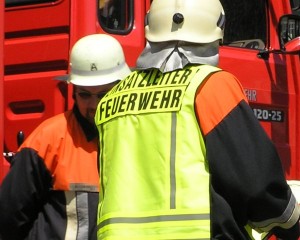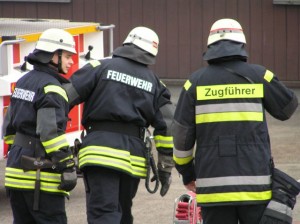Burnout Syndrome at Volunteer Fire Departments

Source: istockphoto.com/feuerwehrleben.de
During the first couple of years, most people are excited to be part of a fire department. But as they get older and their work life becomes more and more stressful, their motivation oftentimes drops. After many years at the same fire department, it’s possible that the opposite happens and the voluntary occupation suddenly is more of a burden.
I’m not a psychologist, so it’s possible that I’m not using the word “burnout” correctly. I’m also not sure whether or not you can technically suffer from burnout syndrome while engaging in a hobby, at least in medical terms. But based on various conversations over the last couple of years, I definitely have gotten the feeling that there are volunteer firefighters who are really sick of it all and who are totally burned out. This is why I would like for this article to be helpful and to maybe sensitize the subject a bit for the supervisors. After all, oftentimes it happens to very dedicated firefighters, and losing them is a real loss for fire departments.
How can you recognize if a firefighter has burnout syndrome?
According to Wikipedia, distinguishing characteristics are “inefficiency and listlessness” as well as a “cynical, prevailing standoffish mood towards colleagues, clients, and one’s own work.” That last part in particular made me think about burnouts in my own surroundings. Sure, there are people who just always complain anyway, but particular attention should be paid if it never used to be like that and keeps getting worse over time. Certain statements made by youth officers and supervisors come to mind: “The youth used to be so much more interested,” “they really don’t want to learn anything anymore,” “they just don’t ever think ahead,” or “nothing’s ever gonna change at this fire department anyway.” And so on…
When a statement like these is made, it’s not immediately a cause for alarm. But if it turns into a consistently negative attitude and the statements turn into routine expressions, it’s a good idea for a supervisor to maybe dig a little deeper. If the person in question himself is an instructor or supervisor at the fire department, his negative attitude does not only affect him but also the firefighters around him. This calls for early involvement to prevent any more members from being dragged down with him.
What can you do to avoid burnout syndrome?
The most successful way of combating burnout syndrome is to work against it during the early stages. This is when it’s easiest for the person affected to do something about it himself. Sure, it’s a lot easier to do at your job, but with some flexibility and enough courage to try innovative approaches, it’s possible to accomplish this at the volunteer fire department, too.
Talking about it
To prevent any negative developments as early as possible, it’s important for supervisors to talk to their firefighters. This way, incorrect expectations can be cleared up, and one might be able to gain some insight into what is weighing down the team members. It can be very discouraging for the affected people when certain processes go consistently badly and are never optimized, regardless of whether it’s the red tape, the alarm, or preparing for exercises.
Assigning different tasks
Another option is to give the firefighter new or different tasks. There’s usually a lot to do at any fire department, and a new area of responsibility can be a breath of fresh air for the firefighter and also make him feel more motivated. For example, he could be involved in picking out a new vehicle or take on a new training subject.
New chief / new surroundings
In the professional world, it’s normal nowadays for an employer to be switched out every 4 – 6 years. It’s a little bit more difficult, of course, for a fire department to do that as there is usually only one local fire department. But after having spent 20 or 30 years with the same unit, you really do know everything inside and out. So maybe it would help to participate in the training at a different unit or neighboring fire department. You’ll meet new people, have other supervisors, and learn a lot of new things. If you return to your old fire department after, say, a year, you will probably notice that everything really wasn’t so bad at your own fire department in the first place.
Take a break
If none of the above helps, maybe a person can try to take some time off. Before a firefighter leaves his unit for good, he should be put on leave for several months. This way, he might get some necessary space from being a firefighter and notice on his own that something would be missing, if he were to give up his job.
What do you guys think? Have you seen similar behavior at your own fire department, and have any of your buddies gotten the help they needed for burnout syndrome?
Tags: burnout, motivation


